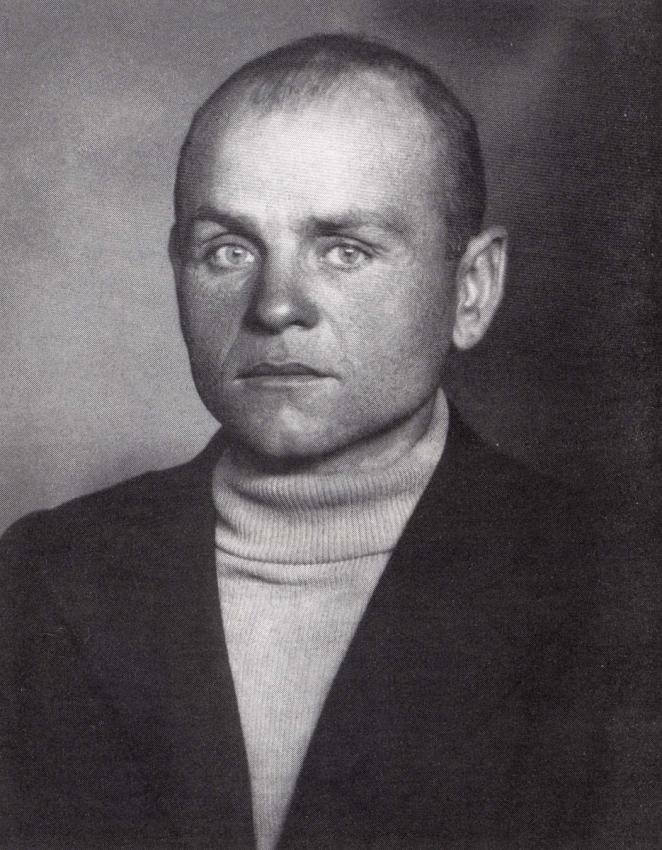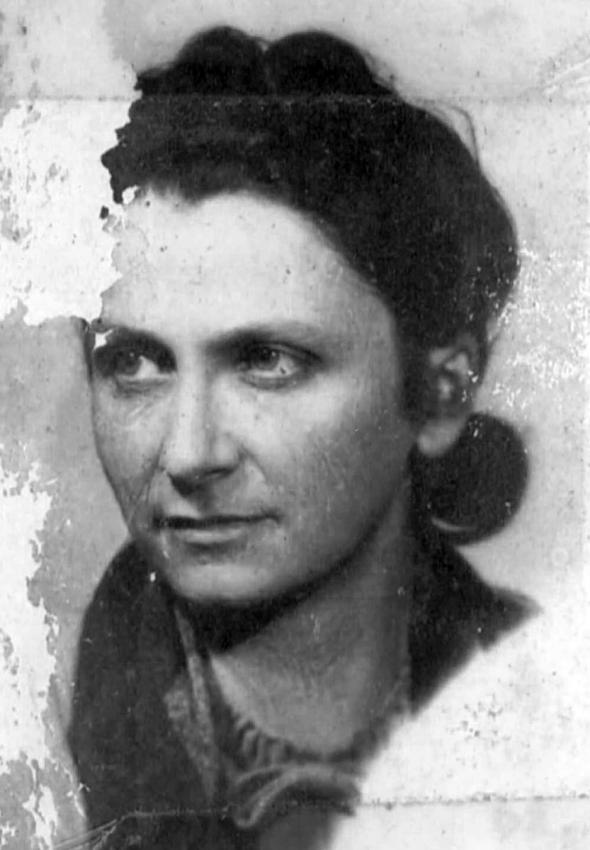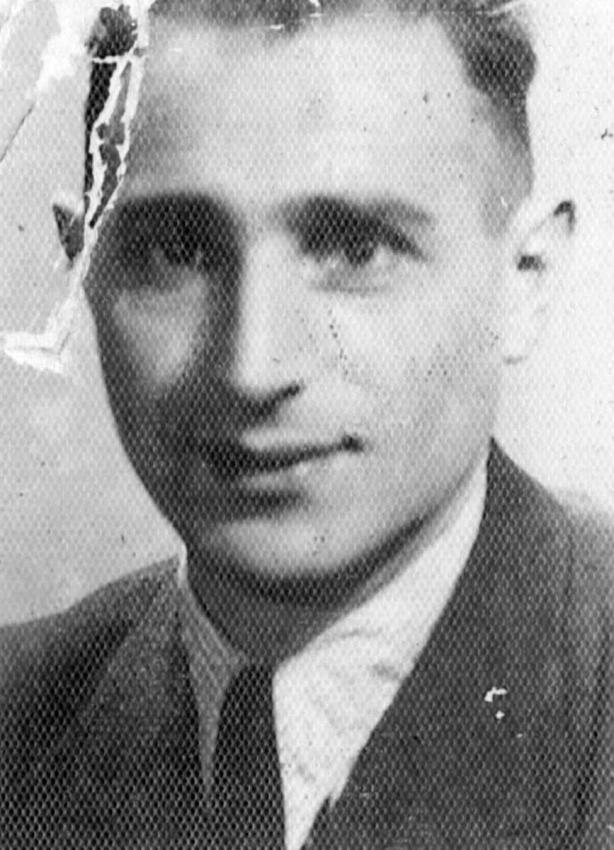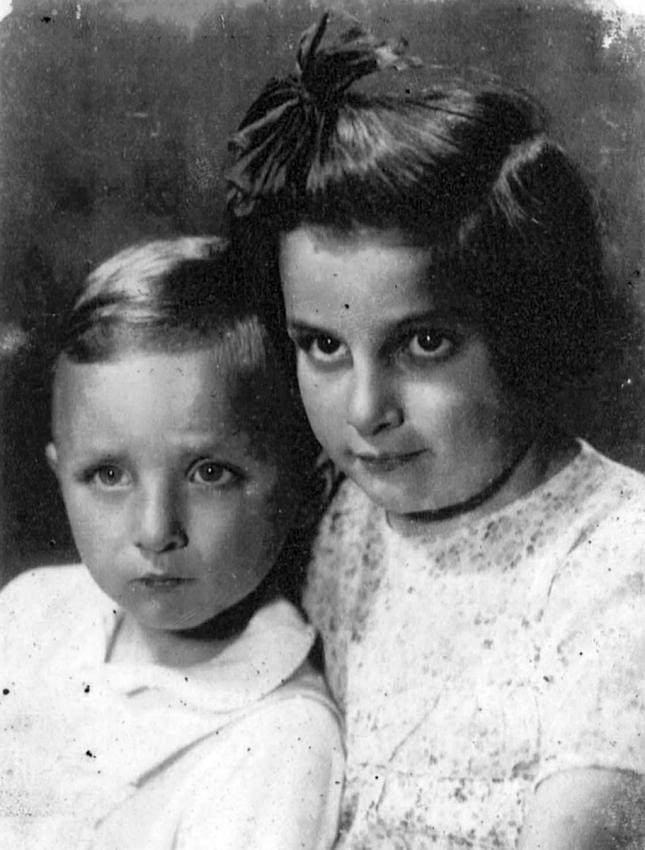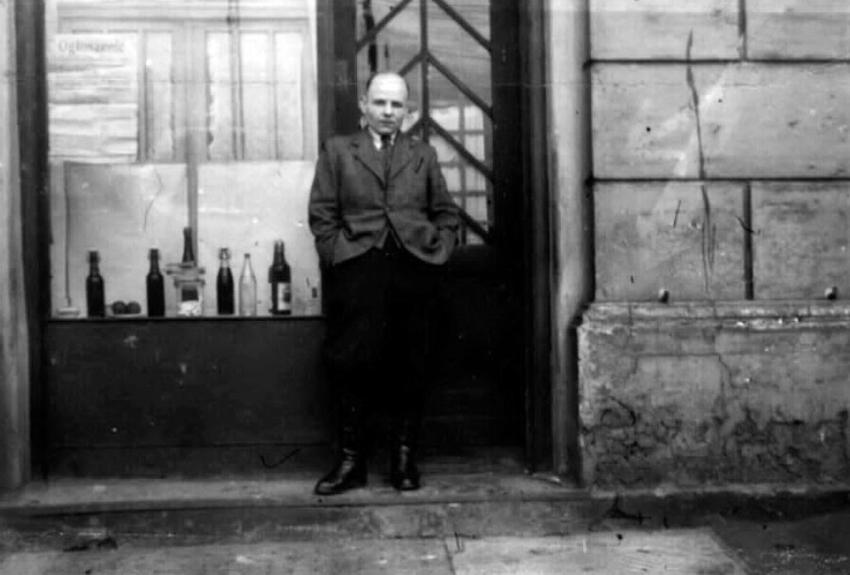In 1941, after the German occupation of the area, the Jews of Lwow including the Chiger family, were forced from their homes into the ghetto. Paulina and Yitzhak Chiger moved into a cramped apartment that they shared with their two children and additional families. Paulina was sent to forced labor as a seamstress in the Janovska camp, in a factory that made German Army uniforms. As an essential worker, she received an armband with a number. Yitzhak worked in construction. Seven-year-old Krystina became a child- minder for her younger brother during the day, ensuring that he was well hidden during the roundups in the ghetto.
The precarious situation in the ghetto pushed Yitzhak to search for ways for his family to escape. He joined a group of Jews who were digging a shaft in the basement of one of the ghetto buildings that led to the city's sewage system. When the shaft was completed and Yitzhak and a few others descended to search for a suitable place for the group to hide, they came across Sanitation Department workers Leopold Socha and Stefan Wróblewski. This fortuitous meeting was the start of an ongoing relationship between rescuers and survivors.
A short time later, with the liquidation of the Lwow ghetto, the members of the group and their families descended through the shaft into the sewer system, finding a small space where they could remain for a length of time. The conditions were harsh. Drinking water had to be collected from a dripping fountain nearby, but bringing the water involved a complicated and dangerous daily feat. They paid for the food they received from Socha and Wróblewski, whose wives bought the food in a complicated procedure so that the unusual amounts of food that they were purchasing would not raise suspicion.
The severe conditions in the sewers included non-existent sanitary conditions, hunger, constant darkness, cold, damp and infestations of rats.
The group's mental and emotional state deteriorated, and precipitated tension and bickering. After a few weeks, about half of the group decided that they could not tolerate the conditions and left to find other places to hide. None survived.
Ten individuals remained in the hideout. After a short time, their funds dwindled and they were no longer able to pay for their food. In spite of this, Socha and Wróblewski continued to supply them with food and tend to their needs. The bond between Socha and Yitzhak grew stronger.
A month before the area was liberated by the Red Army, the group was miraculously saved when the river flooded its banks and overflowed into the sewers. The water almost reached the ceiling of the cell before it receded. The next morning, Socha and Wróblewski came and were surprised to find the group alive.
On 27 July 1944 Socha called from the street: "You're free!" and invited the survivors to his home where his wife had prepared a feast. Tragically, a year after liberation Leopold Socha was killed in an accident.
The Chiger family immigrated to Israel in 1957. Krystina donated the armband that Paulina had worn during the war in Lwow to Yad Vashem, as a tribute to the fate of her family during the war, saved thanks to the bravery, resourcefulness and compassion of Socha and Wróblewski.
On May 23, 1978, Yad Vashem recognized Leopold and Magdalena Socha as Righteous Among the Nations. On October 26, 1981 Stefan Wróblewski and his wife were also recognized as Righteous Among the Nations. In the years after the war, the survivors kept in contact with their saviors.
The story of the rescue of Jews, among them the Chiger family, by the Socha and Wróblewski couples, was produced in 2011 as the film, "In Darkness".
Yad Vashem Artifacts Collection
Courtesy of Kristine (Chiger) Keren, New York, USA


